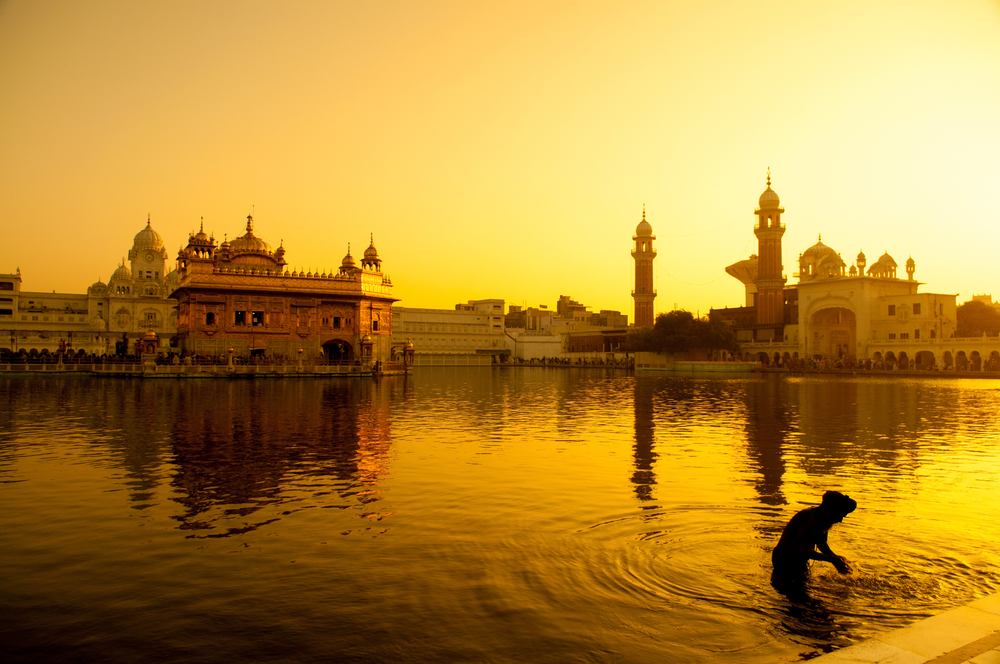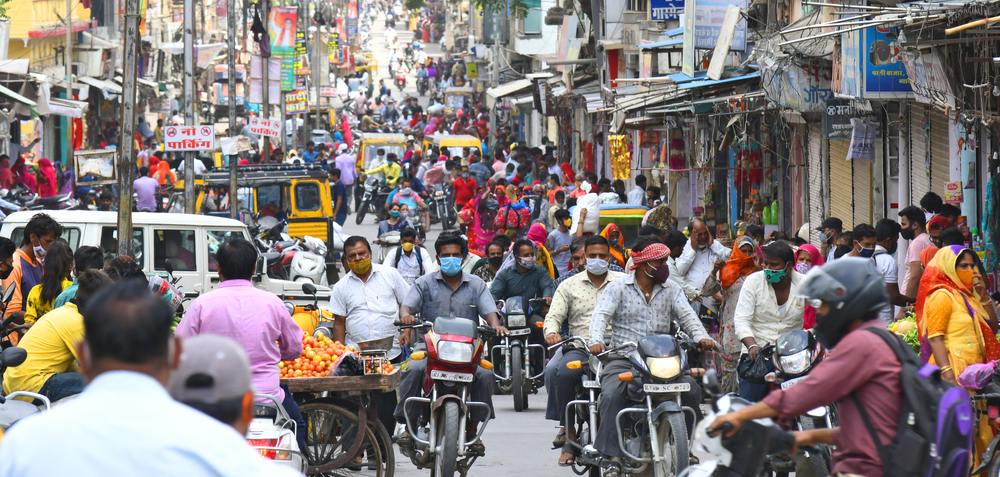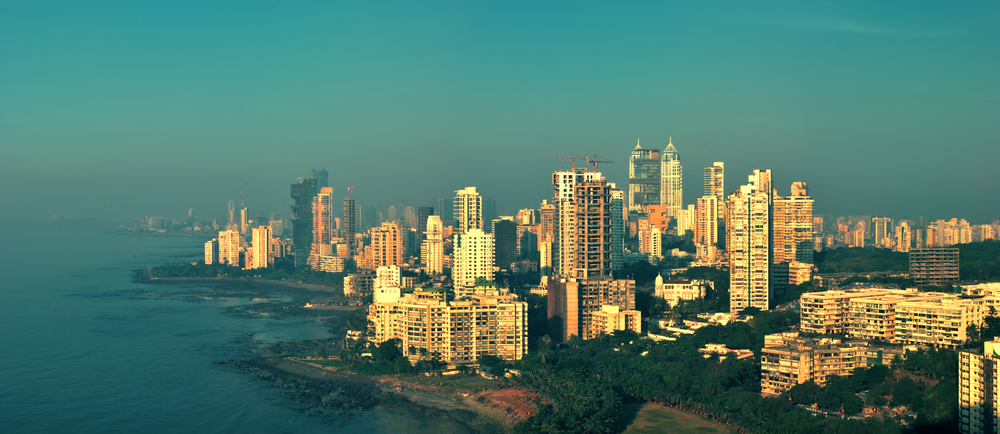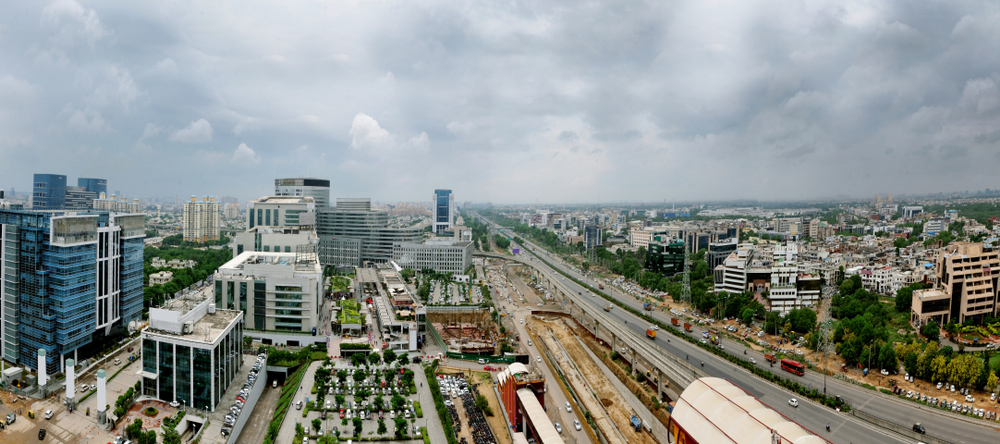The call of home: Indian real estate is back on track
Non-resident Indians (NRIs) lured by the weak rupee and better offerings in the luxury residential sector are helping to put the country’s real estate market back on course

As India contended with a devastating Delta wave last year, the outlook for its housing market looked bleak.
Fears of stagnating house prices were abounding as demand sank and cash stopped flowing, and many braced for a third wave of Covid-19 even worse than the second.
As it happened, that onslaught failed to rival the second in intensity, and the industry is now steaming ahead, driven by the return of a long absent but crucial market for Indian residential real estate: non-resident Indians (NRI).
According to a report by 360 Realtors, NRI investments in Indian real estate amounted to USD13.1 billion last year and are expected to grow by 12 percent this year.
“Real estate has always been the preferred asset class for NRI,” says Mohit Jain, managing director of, Krisumi Corporation.
“The last few months have witnessed a gradual comeback of the NRI to the realty market, bolstering sales of luxury homes.”
Indian expats account for about 6.5 percent of the world’s 272 million migrants, the largest of all groups, and their contribution to India’s economy is significant.
According to a report by the World Bank in 2020, India received more than USD83 billion in remittances.
Real estate has always been the preferred asset class for non-resident Indians. And we’ve witnessed a gradual comeback of the NRI to the realty market, bolstering sales of luxury homes
While NRIs began buying property in earnest in India in the mid to late 90s, demand had waned since the 2008 financial crisis.
Now, however, amid a weak rupee and resurgent property market, that interest is coming back.

“One report has said around 40,000 NRIs are interested in buying property in India. That doesn’t mean they are going to buy today, but they are interested in India as a place to buy their houses,” says Dr Niranjan Hiranandan, founder of Hiranandani Group, an Indian Think-Tank specialising in real estate.
In June, the rupee hit a record low against the US dollar as the global price of crude oil surged, raising concerns about a sustained rise in imported inflation.
The partially convertible rupee was trading at 77.79/80 per dollar after dropping to a record low of 77.81. The previous low of 77.7975 was reached on May 17.
More: Meet Curtis Chin, a passionate advocate for sustainability
Dhimaan Shah, founder and chief operating officer of luxury holiday home developer Isprava Group, said Indians in countries that use US dollars or peg their currency to it rush to buy real estate at home, knowing they can now get more for their money.
“We are seeing a lot of traction from NRIs in the Gulf, which is traditionally a strong market for us,” says Shah.
“In addition to this, we are also witnessing strong demand from Singapore and Hong Kong as well. Over 30 percent of our business so far this year has come from NRIs in these markets, apart from London and Malta,” he adds.
Dheeraj Reddy, sales director of Pooja Crafted Homes, said one of the segments to benefit the most has been luxury.
Indians living in developed countries have become used to a more comfortable and affluent lifestyle and wish for something similar in India, he says.

“Due to the currency value and the appetite of the NRI buyers to invest in India, the demand for luxury properties is really increasing because they get a sense of familiarity with what they expect outside India,” says Reddy.
The surging demand from NRIs is helping to drive India’s property market as it sees its fortunes reversed by the pandemic.
India, which was one of the worst-hit countries by Covid-19, has achieved record sales and launch volumes in the first quarter of 2022, Knight Frank reported.
“The pandemic seems to have cured the residential real estate market of the inertia it was gripped with,” stated a recent report. “Low interest rates, comparatively healthy affordability levels, healthy wage growth and a waning pandemic with lower risk of further disruptions have created a favorable environment for the homebuyer who has rediscovered his need for new and better housing.
“This vastly increased the perceived value of one’s home in the overall scheme of things, and along with the prevailing low interest rates, it sparked and sustained homebuyer interest in the residential market.”

Dr Hiranandani believes NRIs will continue to drive this boom as the rupee remains weak. But what happens when it is no longer?
Already the central bank is moving to strengthen the currency by raising interest rates and stem inflation. In April, consumer price inflation rose to an almost eight-year high of 7.8 percent, well above the central bank’s limit of 6 percent, in large part due to the war in Ukraine driving food and fuel prices.
More: Real estate sector turns to proptech amid global health crisis
Dr Hiranandani believes, however, that the trend of recent months signifies a shift that will continue even if the rupee strengthens. Major cities have developed to offer the kind of lifestyle NRIs can get in the likes of London or Dubai. At the same time, sales are no longer driven by word-of-mouth, but by a sophisticated online presence and branding among developers and estate agents.
“The future looks good in India in terms of opportunities to grow,” he says. “The Prime Minister talks about how India is looking forward to the next generation of development. So overall interest in Indian real estate is growing.”
The original version of this article appeared in Issue No. 173 of PropertyGuru Property Report Magazine. Write to our editors at [email protected].
Recommended
Why everyone is moving to Selangor and Johor: Malaysia’s real estate comeback
Malaysia’s upturn in fortunes is especially prevalent in secondary destinations such as Selangor and Johor
Penang’s silicon boom: How the US-China tech war is supercharging local real estate
Penang’s booming semiconductor industry has created ripples within the local real estate sector
New leader, new opportunities: How Hun Manet is shaking up Cambodia’s real estate game
Hun Manet is overseeing decent economic growth and widening access to the country’s real estate market for foreigners
Singapore embraces inclusive housing reforms amid resilient demand
The Lion City’s regulatory strength continues to exert appeal for international investors








